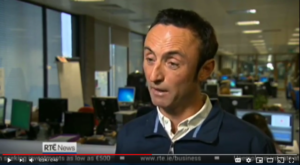Real estate crowdfunding is a relatively new phenomenon that gained interest following the banking crash of 2008. Until now, the European crowdfunding market has not been regulated. That is now set to change with all crowdfunding providers to be regulated by November this year.
Why has regulation not been introduced sooner?
The popular belief is that the European Central Bank (ECB) had decided to hold off on introducing regulation too early, to first allow the market plenty of time to develop.
Nonetheless, here in Ireland the Department of Finance had set out several proposals as to what the regulation would look like, perhaps in an attempt to test the waters, to give feedback, and to make some adjustments.


However, after much deliberation on the 7th of October 2020 the European Council approved the uniform pan-European crowdfunding regulation (ECSP Regulation, EU 2020/1503), of which was decided to take effect in November 2021.
What is the current market situation?
All currently operating crowdfunding service providers have until November 2022 to pass the licensing process and to submit themselves under the supervision of their local Financial Supervisory Authority.
The main benefit is that the locally issued crowdfunding license can be easily passported to other EU member states, allowing the crowdfunding platforms to grow rapidly by being able to provide their services across all EU member states.


What impact will the new regulation have on investors?
The focus of the regulation is on protecting the investor and to act in the investor’s best interest. This mainly pertains to the non-sophisticated investor as it is assumed that the sophisticated investor is already appropriately aware of the risks involved in real estate crowdfunding. The non-sophisticated investor must pass an investor knowledge test and is allowed a 4-day reflection period in which they can withdraw from their investment without sanctions.
This is something that we already cover for the most part as when a non-sophisticated investor is setting up an account there is an extensive amount of risk warning, and as part of the AML/KYC process, the unsophisticated investor must pass an appropriateness test getting every answer correct.
Another focus of the regulation is on borrowers as they are now required to provide their prospective investors with a highly standardised fact sheet, Key Investment Information Sheet (KIIS). This will include the description of the crowdfunding project, information about the lender, investment risks, and so on.
This is also something that we already practice as we scrutinise each loan that comes to us through several layers of stringent assessment based on our lending criteria and further due diligence including credit checks on the borrower and directors are carried out, as well as validating all projected costings and valuations with external quantity surveyors.


What impact will the new regulation have on the European market as a whole?
The new regulation will see many crowdfunding service providers trying to adjust to the new requirements as best they can, but some will not be able to adapt, or at least not fast enough. As a result, the strongest and the most organised providers will grow and expand across the European Union, providing their investors with a larger variety of projects.


What impact will the new regulation have on Property Bridges?
Property Bridges is well prepared for this process with having undertaken extensive legal advice from the start and having been structured to follow the best practice models of mature crowdfunding markets around the world, such as the US and UK. As a result of our diligence, attention, and forward planning, complying with the new regulations has been a smooth process so far.
We have examined the new regulation in detail, and we are ensuring that we comply with every individual aspect. We plan on submitting our application by the end of the summer to become regulated by the end of the year. Overall, one can expect to see some changes at Property Bridges due to the new regulation, but nothing that will inherently change the structure of the organisation because we have prepared for such regulation from the start.
If you have any further questions, please reach out to us at team@propertybridges.com


